Mulching with leaves
gardenfanatic2003
15 years ago
Related Stories

GARDENING GUIDESNew Ways to Think About All That Mulch in the Garden
Before you go making a mountain out of a mulch hill, learn the facts about what your plants and soil really want
Full Story
GARDENING GUIDESHow to Pick a Mulch — and Why Your Soil Wants It
There's more to topdressing than shredded wood. Learn about mulch types, costs and design considerations here
Full Story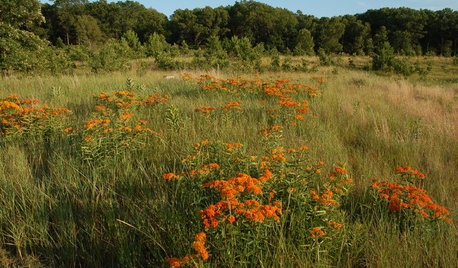
GARDENING GUIDESThe Art of Green Mulch
You can design a natural garden that doesn’t rely on covering your soil with wood and bark mulch
Full Story
FALL GARDENING5 Ways to Put Fall Leaves to Work in Your Garden
Improve your soil and yard the organic way with a valuable garden booster that grows on trees
Full Story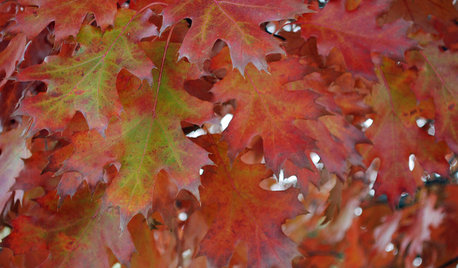
GARDENING GUIDES6 Healthy Ways to Handle Fallen Leaves
Once nature's beautiful bounty is spent, these ecofriendly strategies for leaves will put your yard in the clear
Full Story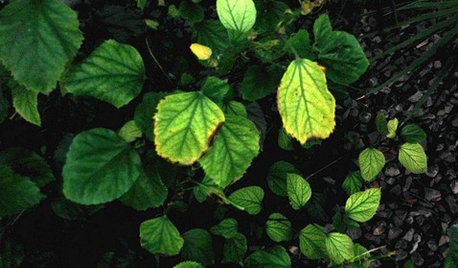
GARDENING GUIDESWhat's Wrong With My Plant? Leaves Often Hold the Clues
Learn how to identify common plant ailments by reading their leaves
Full Story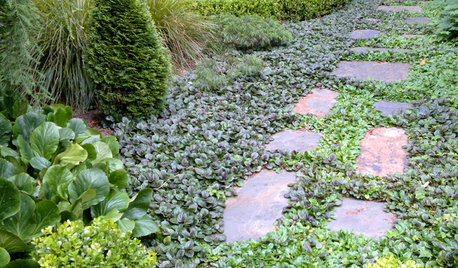
GROUND COVERSGround Force: 10 Top Ground Covers for Your Garden
Protect your soil from weeds and drought this summer with a living mulch of ground covers
Full Story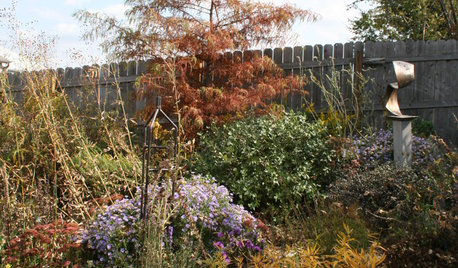
REGIONAL GARDEN GUIDESCentral Plains Gardener's October Checklist
Fall foliage color and crisp mornings, plus mulching beds and planting spring bulbs, make October a gardener's heaven
Full Story
GARDENING GUIDESGarden Myths to Debunk as You Dig This Fall and Rest Over Winter
Termites hate wood mulch, don’t amend soil for trees, avoid gravel in planters — and more nuggets of garden wisdom
Full Story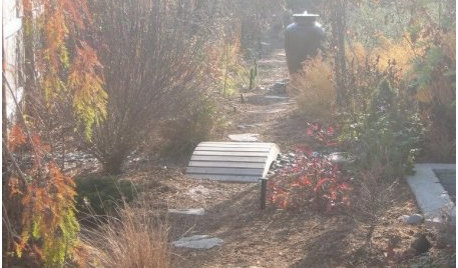
GARDENING GUIDESCentral Plains Gardener's November Checklist
Mulching, seeding, feeding — several small tasks to ensure a winter of activity, and a good spring start.
Full Story






Kimmsr
digdirt2
Related Professionals
Grand Haven Landscape Architects & Landscape Designers · Manorville Landscape Architects & Landscape Designers · Tempe Landscape Contractors · Wilmington Landscape Contractors · Brookfield Landscape Contractors · Kearny Landscape Contractors · Middleton Landscape Contractors · Paramount Landscape Contractors · Pleasant Hill Landscape Contractors · Beavercreek Decks, Patios & Outdoor Enclosures · Draper Decks, Patios & Outdoor Enclosures · Jupiter Decks, Patios & Outdoor Enclosures · Monroe Decks, Patios & Outdoor Enclosures · Salisbury Decks, Patios & Outdoor Enclosures · Watauga Decks, Patios & Outdoor Enclosuresgaijingirl
gardenfanatic2003Original Author
kqcrna
digdirt2
Kimmsr
digdirt2
kqcrna
Kimmsr
rj_hythloday
kqcrna
rj_hythloday
gardenfanatic2003Original Author
digdirt2
luckygal
luckygal
joe.jr317
dottyinduncan
joe.jr317
MissMyGardens